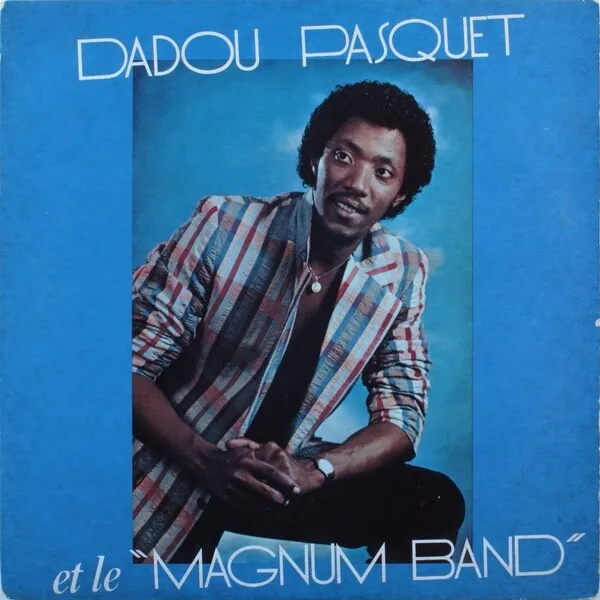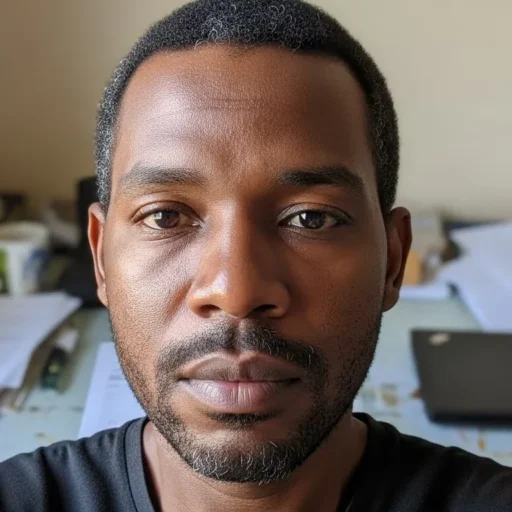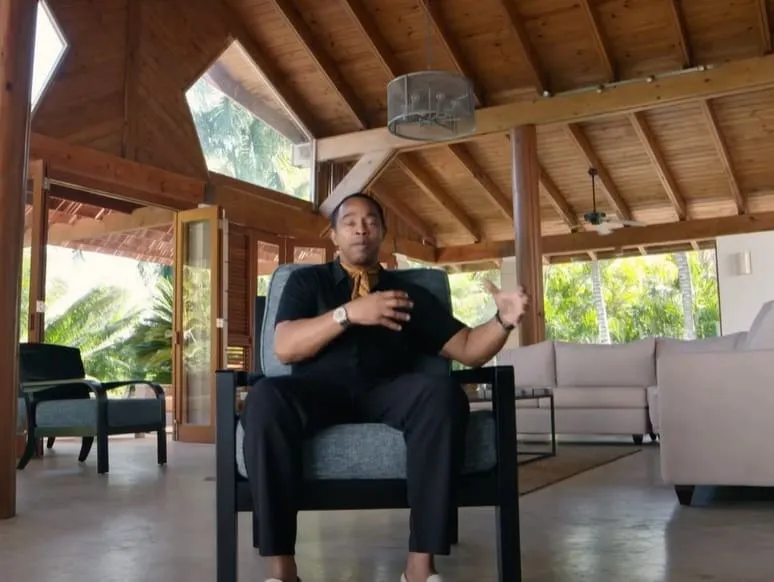The rhythm of a nation often rests in the hands of its musicians, and few hands were as capable or as celebrated as those of Andre “Dadou” Pasquet. The Haitian music community and the global diaspora are currently observing a period of profound reflection following the passing of this legendary guitarist, composer, and vocalist.
Pasquet, a central pillar of the Konpa Dir”k genre, died on November 23, 2025, at the age of 72.
His departure marks the end of a specific era in Caribbean music, one characterized by technical innovation, harmonic complexity, and a deep reverence for cultural roots. According to statements from the Pasquet family, the musician passed away peacefully at his residence in Miami, surrounded by loved ones.
While the specific details of his private health battles remain within the family, the public impact of his loss is being felt across continents.
For over five decades, Dadou Pasquet did not just play music; he engineered a sound that became the soundtrack for generations of Haitians. From the electric energy of Tabou Combo to the sophisticated arrangements of Magnum Band, his work elevated Haitian dance music to international stages.
This article explores the life, the technical mastery, and the enduring cultural footprint of a man who forever changed the landscape of Konpa.
The Early Years: A Prodigy in a Golden Era
To fully appreciate the magnitude of Dadou Pasquet”s influence, one must examine the musical ecosystem of the late 1960s and early 1970s. This was a golden age for Haitian orchestras, a time when musicianship was prized above all else.
Dadou emerged not as a novice learning the ropes, but as a child prodigy displaying a maturity far beyond his years.
By his mid-teens, Pasquet was already performing professionally in the competitive New York music scene. He secured a spot in the prestigious orchestra of Raoul Guillaume, a position that typically required decades of experience. This early exposure to disciplined, orchestral arrangements laid the foundation for his future compositions, instilling in him a respect for structure that would define his career.
His most significant early breakthrough occurred when he joined the legendary ensemble Tabou Combo while still attending high school. The band was in a transitional phase and needed a guitarist to replace Albert Chancy, a figure already revered in the community.
Stepping into such large shoes could have stifled a developing artist, but Pasquet used the opportunity to showcase his unique flair.
Tabou Combo and the International Breakthrough
Dadou Pasquet”s tenure with Tabou Combo coincided with the band”s meteoric rise to international fame. His guitar work became a driving force behind the group”s evolution from a local sensation to a global powerhouse. During this period, the band produced four major albums that are now considered classics of the genre.
The pinnacle of this era was the release of “New York City,” a track that transcended cultural boundaries. The song became a massive hit, charting in Europe and introducing the rhythms of Konpa to audiences who had never heard Haitian music before.
Pasquet”s guitar riffs on these records were not merely accompaniment; they were melodic statements that rivaled the vocals in importance.
Despite this success, Pasquet felt a creative restlessness. The collaborative nature of a large band like Tabou Combo, while successful, limited his ability to explore more experimental musical territories. He envisioned a sound that fused the raw power of rock and funk with the swing of Konpa, a vision that would eventually lead to his departure.
Magnum Band: The Philosophy of “La Seule Diff”rence”
In 1976, Dadou Pasquet and his brother, the renowned percussionist Claude “Tico” Pasquet, founded Magnum Band. The group was launched on June 24, coinciding with the feast of Saint-Jean, a date imbued with cultural significance in Haiti.
Their debut performance at a Masonic lodge in Miami set the tone for a band that would always operate with a certain mystique and intellectual depth.

Magnum Band adopted the slogan “La Seule Diff”rence” (The Only Difference), a bold declaration of their unique identity. Unlike many of their contemporaries who stuck to traditional formulas, Magnum Band embraced eclecticism. They integrated complex jazz chords, funk basslines, and rock-influenced guitar solos into the standard Konpa rhythm.
The chemistry between Dadou and Tico was the engine of the band. Tico”s percussion was aggressive and precise, providing a solid rhythmic backbone that allowed Dadou”s guitar to float freely. This interplay created a sound that was simultaneously heavy and melodic, capable of satisfying both critical listeners and partygoers.
Deconstructing the “Musique Savante” Label
Throughout the 1980s and 1990s, critics often categorized Magnum Band”s output as “musique savante,” or scholarly music. This term was sometimes used pejoratively to suggest that the music was too intellectual for the dance floor. Critics pointed to the intricate harmonies and unexpected chord progressions as evidence that the band was prioritizing theory over groove.
However, this assessment often missed the point of Pasquet”s genius. As noted by fellow musicians and producers like Fabrice Rouzier, the complexity of the music never compromised its Haitian roots. The fundamental “tim-tim-bi-dim” rhythm of the Konpa was always present, anchoring even the most experimental arrangements.
Dadou proved that sophistication and danceability were not mutually exclusive. Hits like “Experience” and “Paka Pala” filled dance floors from Port-au-Prince to Paris. The “musique savante” label eventually transformed from a criticism into a badge of honor, acknowledging the high level of musicianship that Magnum Band brought to the industry.
A Musical Alchemist: Blending Folklore and Modernity
One of Dadou Pasquet”s most significant contributions was his ability to reinterpret Haitian folklore for a modern audience. He viewed traditional songs not as static relics but as living entities that could be evolved and expanded. This approach allowed him to bridge the gap between the rural traditions of Haiti and the urban sounds of the diaspora.
A prime example of this was his adaptation of Raoul Guillaume”s “Complainte Paysanne.” Pasquet reimagined the track with reggae influences, a genre-bending move that was revolutionary at the time. Similarly, his version of “Panama m tonbe” revitalized a classic standard, introducing it to a younger generation who might otherwise have ignored it.
His lyrical content also reflected a deep social consciousness. Songs like “Libete” (Liberty), released in 1982, spoke to the political and social realities of Haiti. Pasquet used his platform to comment on the human condition, blending poignant lyrics with uplifting melodies to create music that engaged both the mind and the body.
Technical Mastery and Studio Innovation
Beyond his public persona as a guitarist, Dadou Pasquet was a formidable studio technician. He was a multi-instrumentalist capable of playing bass, percussion, and keyboards with professional proficiency. In the later years of his career, he embraced digital technology, becoming a master of programming and production.
This self-sufficiency allowed him to produce entire tracks solo, handling every aspect of the arrangement himself. His understanding of audio engineering meant that Magnum Band”s records often had a sonic clarity that surpassed their competitors. He was meticulous about tone, spending hours dialing in the perfect guitar sound to complement the mix.
His vocal abilities were equally impressive. While known primarily for his guitar, his voice possessed a unique timbre—soulful, raspy, and emotive. Duets such as “Louvri je w” with Reginald Policard showcased a sensitivity that balanced the often high-energy nature of his instrumental work.

Legacy and Mentorship
Dadou Pasquet was known within the industry as a “silent power.” He was not one to boast, preferring to let his music speak. However, he was a dedicated mentor to younger musicians. He believed in the importance of music theory and often encouraged up-and-coming artists to study the fundamentals of their craft.
Stories abound of Pasquet stopping rehearsals to correct a chord voicing or to explain a harmonic concept to a younger player. This was never done with malice, but with a desire to elevate the standard of Haitian music. He wanted the next generation to be as capable and knowledgeable as the jazz and funk musicians he admired abroad.
As the Haitian music world mourns his passing, his legacy remains secure. He leaves behind a catalog that serves as a masterclass in Konpa composition. From the energetic riffs of the 70s to the polished productions of the 2000s, Dadou Pasquet”s work stands as a testament to the power of innovation within tradition.
FAQ: Understanding Dadou Pasquet”s Impact
What musical genre is Dadou Pasquet best known for?
Dadou Pasquet is best known for Konpa Dir”k (often spelled Compas), the modern m”ringue dance music of Haiti. However, his specific style was a fusion that incorporated elements of American jazz, funk, rock, and reggae. This unique blend helped modernize the genre and expand its appeal beyond traditional audiences.
Why is Magnum Band called “La Seule Diff”rence”?
The slogan “La Seule Diff”rence” (The Only Difference) was adopted to highlight the band”s unique approach to music. While many bands in the 1970s and 80s followed a strict formula, Magnum Band experimented with complex arrangements, sophisticated harmonies, and diverse instrumentation. The name signified that they offered a distinct alternative to the status quo.
What was Dadou Pasquet”s role in Tabou Combo?
Dadou Pasquet served as the lead guitarist for Tabou Combo during their rise to international fame in the early 1970s. He replaced the original guitarist Albert Chancy. During his time with the band, he contributed to major hits like “New York City” and helped define the energetic, guitar-driven sound that made the group famous worldwide.
What is meant by the term “Musique Savante”?
“Musique Savante” translates to “scholarly music” or “intellectual music.” Critics used this term to describe Magnum Band”s sound because of its technical complexity and jazz influences. While initially intended to suggest the music was too difficult for casual dancing, it eventually became a term of respect acknowledging the band”s superior musicianship and composition skills.
Did Dadou Pasquet play instruments other than guitar?
Yes, Dadou Pasquet was a skilled multi-instrumentalist. In addition to being a virtuoso guitarist, he was proficient on the bass, percussion, and keyboards. He was also an expert in digital music programming and studio production, often handling all the instrumentation for his later recordings himself.
What are some of Dadou Pasquet”s most famous songs?
Some of his most enduring tracks include “Experience,” “Paka Pala,” “Libete,” and his reggae adaptation of “Complainte Paysanne.” His work on Tabou Combo”s “New York City” is also legendary. These songs are celebrated for their blend of catchy rhythms and intricate musical arrangements.


